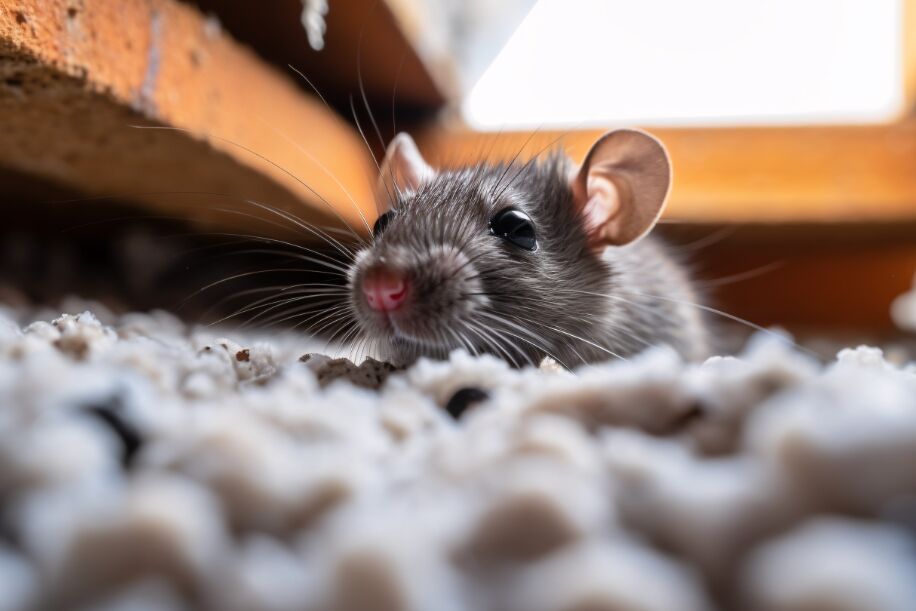Developing a rodent control strategy for your residence is vital for preserving a safe and healthy living environment. Rodents, including mice and rats, not only inflict serious damage to property but also pose significant health risks through the transmission of diseases. Therefore, it is essential to grasp effective ways to manage and prevent rodent invasions. This article provides a roadmap for creating a comprehensive plan to keep these unwanted intruders away.

Recognizing the Risks Posed by Rodents
Before diving into the detailed process of formulating a rodent control strategy for your home, its crucial to understand the threats represented by rodents. These little creatures are far more than just a bothersome presence. Rodents can gnaw through electrical wires, insulation, and even the structural integrity of your home, resulting in expensive repairs. In addition, they carry numerous diseases, such as hantavirus, leptospirosis, and salmonella, which can spread to humans through contact with their droppings or urine.
Rodents are also known for their rapid breeding, meaning a minor issue can swiftly turn into a significant infestation. This emphasizes the importance of early detection and prevention. For further insights on the risks associated with rodents, check out this in-depth guide.
Identifying Potential Entry Points and Infestation Signs
The first step in developing a rodent control strategy for your home is to locate possible entry points and signs of an infestation. Rodents are surprisingly agile and can fit through tiny openings in doors, windows, and foundations. Conduct a detailed inspection of your home for any cracks or holes and seal them promptly to deter rodents from entering.
Common indicators of a rodent infestation include droppings, gnaw marks, and nests constructed from shredded materials. You may also hear scratching sounds in walls or ceilings, especially at night when rodents are most active. If you encounter any of these signs, acting quickly is crucial.
Utilizing Natural Repellents
Incorporating natural repellents into your rodent control strategy can be an effective and eco-friendly option. Certain scents, such as peppermint oil, eucalyptus, and vinegar, are known to deter rodents. By soaking cotton balls in these substances and placing them in areas where rodents could enter, you can help keep them at bay. For an extensive list of natural repellents, refer to Good Housekeeping's guide.
Setting Up Traps and Baits
While natural repellents can be effective, utilizing traps and baits is often necessary to eliminate existing rodent populations. A range of traps is available, such as snap traps, glue traps, and live catch traps. It's vital to select the appropriate type of trap for your specific situation and place them strategically in areas with known rodent activity.
Baits can also serve as a means of controlling rodent populations. Poison baits may be beneficial but should be handled with caution, particularly in homes with pets or young children. Always follow the manufacturer's guidelines and consider consulting a professional pest control service if you have any uncertainties.
Upholding a Tidy Environment
A tidy environment is less appealing to rodents, making cleanliness a critical aspect of any rodent control strategy for your home. Store food in airtight containers and promptly clean up any spills and crumbs. Regularly dispose of garbage and keep outdoor trash bins sealed to avoid attracting rodents.
Furthermore, maintaining a clutter-free living space diminishes potential hiding spots for rodents. Regularly inspect storage areas, basements, and attics for signs of rodent presence and take corrective actions as necessary.
Considering Professional Assistance
In certain scenarios, enlisting the help of a professional pest control service may be essential. If your rodent issue is substantial or if you are struggling to manage it independently, don't hesitate to seek expert aid. Pest management professionals possess the necessary tools and knowledge to effectively eliminate infestations and can offer insights on preventing future problems.
Monitoring and Adapting Your Strategy
Establishing a rodent control plan for your home is not merely a singular effort. Ongoing monitoring and adjustment of your strategy are vital for sustained success. Regularly assess your property for new entry points, signs of rodent activity, and ensure that deterrents and traps remain effective.
Be proactive in modifying your strategy based on evolving circumstances, such as seasonal changes or renovations that could impact rodent behavior. Stay updated on the latest rodent control methods and resources by visiting A-Z Animals.
Conclusion
Creating a rodent control strategy for your home is an essential part of ensuring a safe and healthy living environment. By recognizing the threats posed by rodents and implementing a well-rounded approach that involves identifying entry points, employing natural repellents, traps, and maintaining cleanliness, you can effectively manage and prevent infestations.
Proactivity is key, and seeking professional assistance when needed can significantly enhance the effectiveness of your rodent control efforts. For more information on natural methods and products for eliminating mice, check out Tomcat Brand's resource.

FAQs
What are the most common indicators of a rodent infestation?
Typical indicators include droppings, gnaw marks, nests made from shredded materials, and scratching sounds in walls or ceilings. If any of these signs appear, its critical to take timely action.
Do natural repellents work in rodent control?
Yes, natural repellents such as peppermint oil, eucalyptus, and vinegar can deter rodents. However, they're often most effective when used alongside other control methods, including traps and baits.
When should I consider hiring professional pest control services?
If you find your rodent problem is severe or if managing it yourself proves too challenging, seeking professional pest control services may be the best course of action. Experts have the resources and expertise to effectively eliminate infestations and offer strategies to prevent similar issues in the future.
